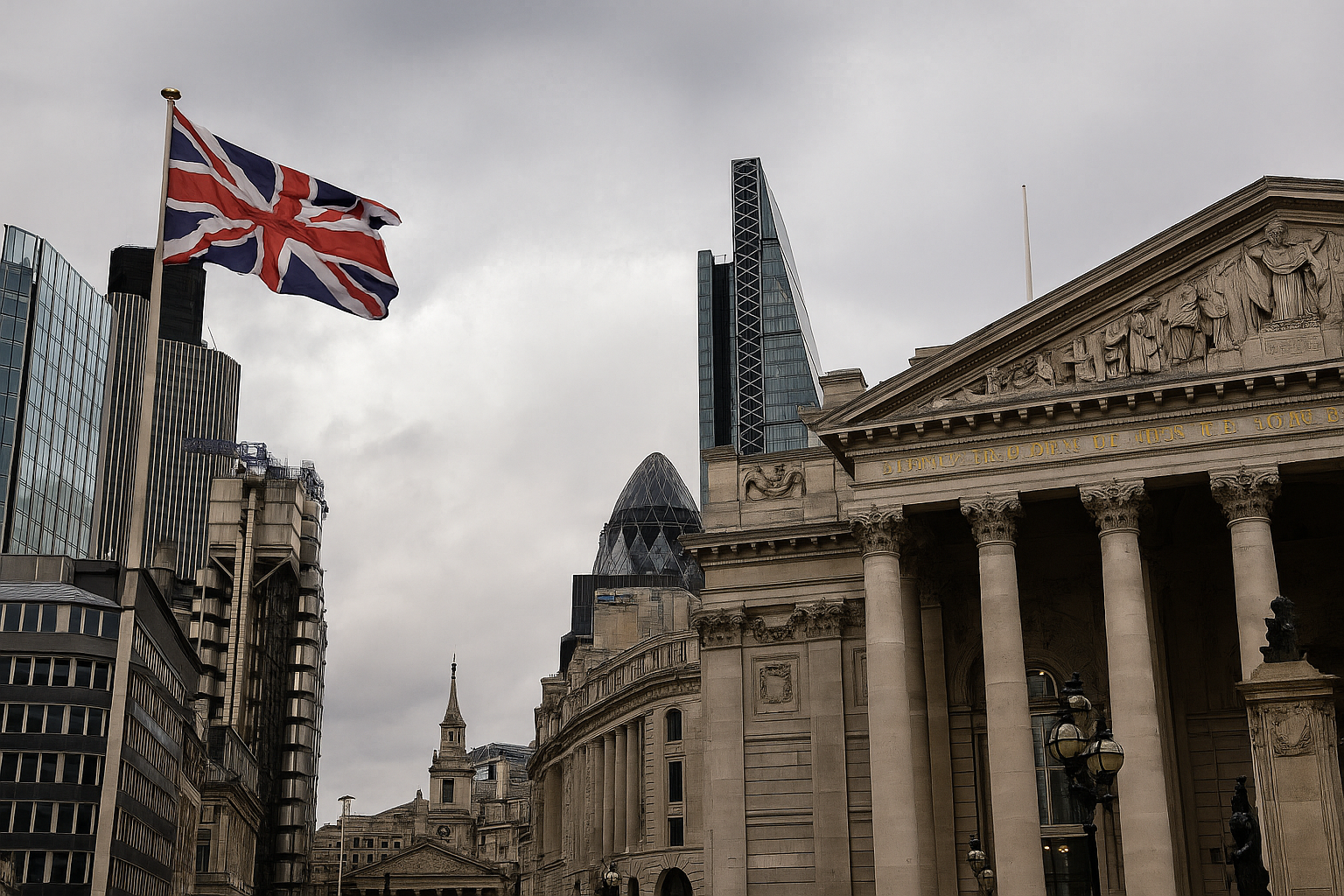UK Bank Shares Slide on Fears of New Tax Targeting Reserve Earnings
By Tredu.com • 8/29/2025
Tredu

Panic in the Financial Sector
UK bank shares stumbled sharply on Friday as speculation mounted over a potential new tax targeting earnings banks receive from their reserves held at the Bank of England. The Institute for Public Policy Research (IPPR) called for a levy on roughly £22 billion in annual interest that banks accrue due to quantitative easing—a measure designed to shore up Britain's strained public finances.
Industry heavyweights felt the pressure immediately. NatWest plunged approximately 5.1%, Lloyds slid 4.9%, and Barclays dropped 4%, making the banking sector the worst-performing segment of the STOXX 600 index. Other European banks also stumbled.
IPPR Gets Political
The IPPR’s proposal arrives amid growing political pressure to balance the books. The think tank argued that the current structure, under which banks receive above-market interest rates on their BoE reserves, amounts to an unfair taxpayer subsidy. A levy, they suggest, would help close a budget gap without raising ordinary taxes.
This isn’t the first time UK banks have faced this kind of scrutiny. In the early 1980s, a similar “windfall tax” was imposed under Margaret Thatcher to claw profits driven by policy tailwinds back to public coffers.
BoE’s Mechanism Under Fire
Under the current QE setup, banks earn interest on reserves paid at the BoE base rate, now elevated. Critics claim this “transmission mechanism” that once supported borrowing is now overly generous and costly to the taxpayer.
For perspective, the BoE is effectively paying more in interest than it earns on the bonds it holds, creating a £22 billion yearly drag on public finances. The IPPR argues that banks should return at least some of these windfalls.
How Politicians and Markets Reacted
Chancellor Rachel Reeves has yet to endorse the idea, with her office reaffirming that the government’s focus remains on boosting economic growth, not immediately overhauling tax policy. But whispers of a looming levy triggered immediate market reaction.
Major industry voices warned that such a tax, on top of existing burdens, risks making the UK less attractive to financial services firms. The banking sector, a pillar of London’s economic strength, might bear the brunt.
Broader Implications for UK Markets
The sector’s sell-off weighed on broader sentiment. The FTSE 100 fell 0.4%, driven largely by the slump in banking stocks, while the FTSE 250 followed suit, nearing its worst weekly performance in five months.
Investors are now bracing for potential ripple effects. If banks contract lending or scale back operations due to tighter margins, the impact could echo across homes, businesses, and small enterprises that rely on bank financing.
Is This the Start of a Tax Frenzy?
The IPPR’s proposal may be a test balloon, but it’s far from theoretical. Similar tax reforms are being mooted, including hikes on landlord income and proposals to freeze income tax thresholds to raise revenue.
The looming autumn budget is shaping up to be one of the most consequential in recent years, with pressure mounting to deliver on public spending without stifling growth. If adopted, a bank reserve levy would be highly symbolic, signaling a tougher line on the financial sector’s past profiteering.
The Bigger Picture
The UK's financial hub has long benefited from favorable policy environments and strong global capital flows. But growing inequality, fiscal challenges, and public frustration mean that tailwinds may now become headwinds. As one analyst put it, “Banks are high-profile, profitable, and politically convenient targets, this could be the start of a broader tax reset.
The Bottom Line
UK bank shares slid sharply amid growing speculation that Chancellor Rachel Reeves may impose a new tax on banks' reserve earnings, plunging the sector into uncertainty and raising questions about the future of financial services in the UK. Whether this becomes policy or remains a talking point, it’s changed the conversation and investor confidence in Britain’s markets.

How to Trade Like a Pro
Unlock the secrets of professional trading with our comprehensive guide. Discover proven strategies, risk management techniques, and market insights that will help you navigate the financial markets confidently and successfully.


